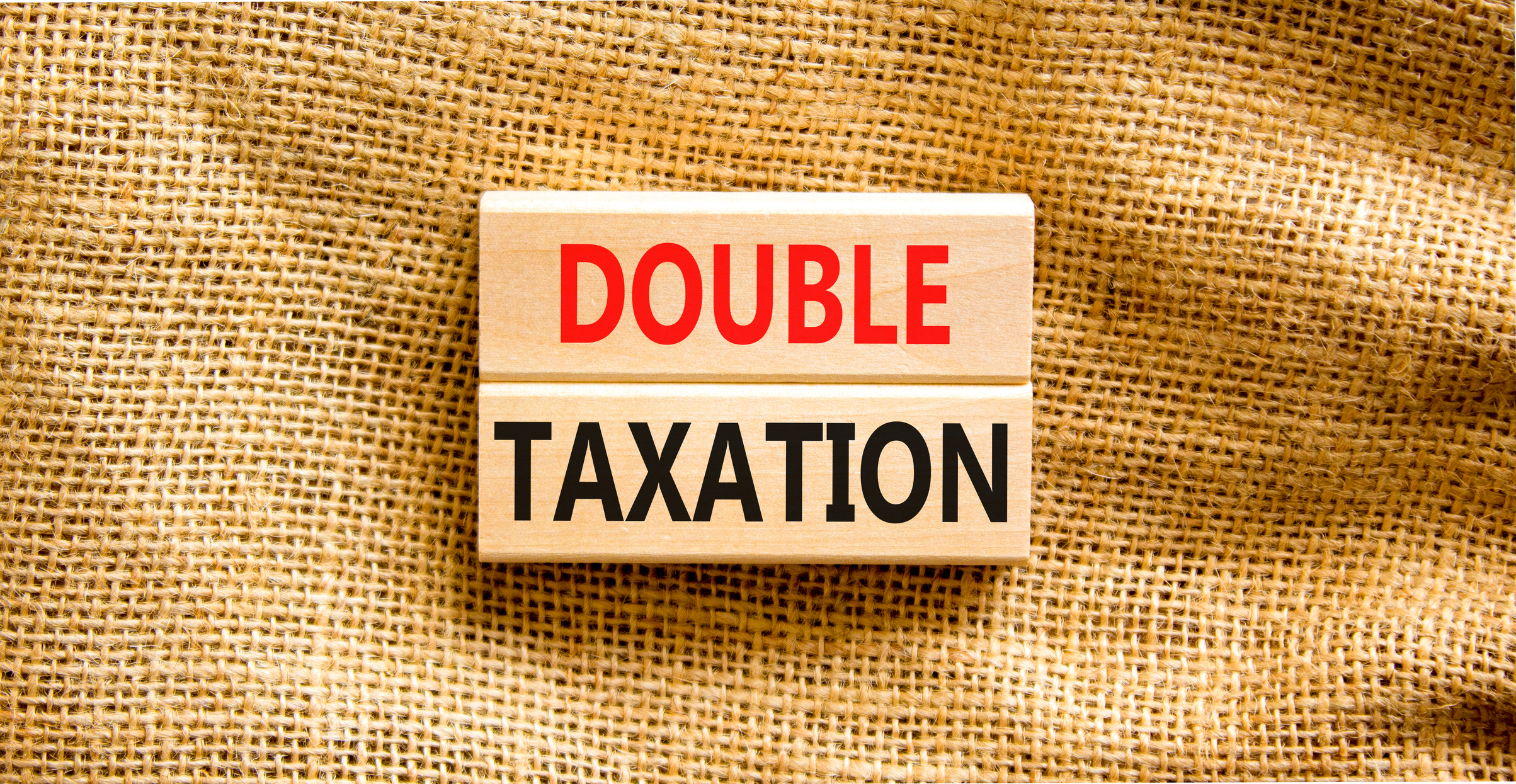Is Your State Coming For Your Online Sports Bets?
Several states are trying to hike sports betting tax rates in 2025. Here’s how it could affect you.


Profit and prosper with the best of Kiplinger's advice on investing, taxes, retirement, personal finance and much more. Delivered daily. Enter your email in the box and click Sign Me Up.
You are now subscribed
Your newsletter sign-up was successful
Want to add more newsletters?

Delivered daily
Kiplinger Today
Profit and prosper with the best of Kiplinger's advice on investing, taxes, retirement, personal finance and much more delivered daily. Smart money moves start here.

Sent five days a week
Kiplinger A Step Ahead
Get practical help to make better financial decisions in your everyday life, from spending to savings on top deals.

Delivered daily
Kiplinger Closing Bell
Get today's biggest financial and investing headlines delivered to your inbox every day the U.S. stock market is open.

Sent twice a week
Kiplinger Adviser Intel
Financial pros across the country share best practices and fresh tactics to preserve and grow your wealth.

Delivered weekly
Kiplinger Tax Tips
Trim your federal and state tax bills with practical tax-planning and tax-cutting strategies.

Sent twice a week
Kiplinger Retirement Tips
Your twice-a-week guide to planning and enjoying a financially secure and richly rewarding retirement

Sent bimonthly.
Kiplinger Adviser Angle
Insights for advisers, wealth managers and other financial professionals.

Sent twice a week
Kiplinger Investing Weekly
Your twice-a-week roundup of promising stocks, funds, companies and industries you should consider, ones you should avoid, and why.

Sent weekly for six weeks
Kiplinger Invest for Retirement
Your step-by-step six-part series on how to invest for retirement, from devising a successful strategy to exactly which investments to choose.
Many have been glued to their television screens watching the World Series and the National Basketball Association (NBA) finals. But if you’re placing bets on your favorite teams, watch out. Your state might be coming for those winnings.
Online sports betting has grown in recent years, with the American Gaming Association reporting a record-breaking $3.87 billion in the first few months of 2025 alone.
However, with the rise of sports betting comes the unfortunate potentiality of higher taxes on gambling wins and losses. The federal tax policy remains the same. But state legislatures are looking for ways to take advantage of the industry’s popularity.
From just $107.88 $24.99 for Kiplinger Personal Finance
Become a smarter, better informed investor. Subscribe from just $107.88 $24.99, plus get up to 4 Special Issues

Sign up for Kiplinger’s Free Newsletters
Profit and prosper with the best of expert advice on investing, taxes, retirement, personal finance and more - straight to your e-mail.
Profit and prosper with the best of expert advice - straight to your e-mail.
Here are the states that have either recently increased or proposed bills to hike sports betting taxes in 2025.
Sports betting tax increase
Kiplinger used the online sports bet tax rates from the Tax Foundation to determine which states currently enact a sports betting tax. Data was then collected and compiled for states that recently increased, or are currently considering increasing, their online sports bets taxes. Here they are.
*Note: Sports betting isn’t legal in all 50 states. Check your local laws before placing a bet.
Colorado online sports betting
Colorado Gov. Jared Polis recently signed into law the elimination of a bet tax incentive that could affect all Centennial State sportsbooks.
- Currently, sportsbook operators can deduct a certain percentage of “free bets” from their taxable revenue.
- However, HB 1311, backed by bipartisan sponsorship, will gradually eliminate that deduction until it is completely phased out by July 1, 2026.
Colorado already taxes online sports bets at a rate of 10%, making it the 19th most expensive state tax in the U.S., according to Tax Foundation data.
And the new law is expected to reduce the number of promotions offered to bettors, thereby increasing tax revenue in the state. Some speculate this will make U.S.-based sports betting operators less attractive than offshore operators, which could potentially harm the domestic sports betting industry in Colorado.
Regardless, the new sports betting law goes into effect on July 1, 2025, limiting free bet deductions to just 2% per month. The rate drops again to 1% on January 1, 2026, before completely disappearing in July 2026.
Illinois sports betting fee
Per the Tax Foundation, Illinois sports betting taxes are the 12th-highest in the nation. But starting July 1, 2025, the Land of Lincoln will add yet another online sports betting tax.
Currently, Illinois sportsbooks are taxed on an Adjusted Gross Sports Wagering Receipts (AGSWR) tier system:
- The first $30 million of AGSWR is taxed at a rate of 20%.
- AGSWR between $30 million and $50 million is taxed at 25%.
- AGSWR between $50 million and $100 million is taxed at 30%.
- AGSWR between $100 million and $200 million is taxed at 35%.
- AGSWR exceeding $200 million is taxed at 40%.
Under the new law, there will be an additional per-wager tax of 25 cents levied on sportsbooks for the first $20 million of online sports bets placed every fiscal year.
Any wagers placed above that amount will have the tax doubled to 50 cents per bet.
The new law has prompted larger operators like FanDuel to announce a 50-cent transaction fee on every online wager placed in the Prairie State.
CNBC news also reports that DraftKings “anticipates taking action [due to the tax increase] and expects to share more information soon.” In short, sports betting may be getting more expensive in Illinois.
Louisiana sports betting online
Louisiana may also soon have a tax hike on online sports bets.
HB 639, sponsored by Rep. Neil Riser (R-Columbia), would increase sports gambling tax in the Bayou State from 15% to 21.5%. One-fourth of the increase would support college athletes at Louisiana’s public universities.
The funds could be used for scholarships, insurance, medical coverage, facility improvements, and other student-athlete expenses at the NCAA Division I level.
But with a higher rate of 21.5%, Louisiana could bump the state from the 12th most expensive state to place a sports bet to the 5th, per Tax Foundation data.
Yet the bill has already passed both the House and the Senate, and is expected to be signed into law by Gov. Jeff Landry.
Legal online sports betting in Maryland
Maryland recently increased its online sports betting tax, effective July 1, 2025.
HB 352, part of the state’s Budget Reconciliation and Financing Act, will increase the mobile sports betting taxes from 15% to 20%. While not as dramatic as a previously proposed 30% tax, the rate could lead to less attractive odds or fewer promotional opportunities for bettors.
Sports betting operators generally oppose tax increases due to potentially lower payouts for winning bets and fewer funds for free bets and other promotions (per the National Conference of State Legislatures).
Some also speculate that sports betting operators will pass on the higher tax rates to consumers.
However, it’s important to note that in-person Maryland sports betting will remain at 15%, even after July 1. The Free State currently has the 12th highest sports bet tax in the nation, according to Tax Foundation data.
Sports betting legality in Massachusetts
Massachusetts is considering increasing its tax on online sports betting from 20% to a whopping 51%. This would make the Bay State one of the worst places to sports bet tax-wise, per the Tax Foundation.
- The “Bettor Health Act,” proposed by Sen. John Keenan (D-Quincy), would raise the tax rate on sports bets to address “economic, health, and social harms caused by sports betting.”
- The bill would also ban prop bets (event-specific wagers in a game) and set daily and/or monthly betting limits.
However, it’s important to note that a similar attempt was made last year by Keenan and failed to garner support in the state Senate.

Bettors can place wagers on basketball, soccer, and baseball via online sports bets.
Can you do sports betting in New Jersey?
Earlier this year, New Jersey Gov. Phil Murphy proposed increasing the online sports betting tax rate.
- The proposal, included in the state’s budget plan, would almost double the state tax from 13% to 25%.
- Online casino gambling tax rates would also increase, from 15% to 25%.
The additional revenue could address the projected budget deficit and boost funding for programs benefiting older adults and those with disabilities.
However, New Jersey currently has the 16th highest sports bet tax in the nation, according to the Tax Foundation. Some speculate that an increased tax on sports betting operators would be passed on to consumers and could negatively impact the industry.
Is sports betting legal in North Carolina?
Sports betting taxes in North Carolina are the 11th highest in the U.S. at 18%, per Tax Foundation data. But that’s not stopping state lawmakers from considering a raise on the state's sports tax.
Thanks to a proposed budget from the North Carolina Senate, the sports bet tax rate could double to 36%.
The state Senate estimates the tax rate increase could generate $53.4 million alone in the next fiscal year. The additional revenue could be used to fund university athletic departments and the Youth Outdoor Engagement Commission.
However, the North Carolina House of Representatives’ budget proposal does not increase the sports wagering tax rate in the state, suggesting a potential disagreement on policy within the state House and Senate Republican majorities.
The goal is to finalize the state’s budget by July 1, 2025, and submit it to North Carolina Gov. Josh Stein for approval.
Ohio tax bill on sports betting
Ohio lawmakers may make history with new sports betting taxes in the state.
- Introduced by Sen. Louis Blessing III (R-Colerain Township), SB 199 would add a 2% tax on the “betting handle” (total amount wagered by bettors).
- The tax would be in addition to the usual 20% tax on online sportsbook gambling revenue that the Buckeye State currently enacts.
- This would make Ohio the first state to tax both sports betting handles and revenue.
Funds raised by the tax increase would support publicly owned sports facilities, interscholastic athletics, and public school extracurricular activities.
However, this isn’t Ohio’s first rodeo with proposed gambling tax increases.
Earlier this year, Ohio Gov. Mike DeWine proposed doubling the sports betting rate to 40% as part of his budget bill. While the newest tax proposal isn’t entirely the same, DeWine’s bill received significant backlash from Republican lawmakers.
The pushback may be good news for Ohio bettors, as their state already ranks as the 6th highest online sports betting tax rate in the nation, per Tax Foundation data.
Sports betting in Wyoming
A Wyoming legislative committee is proposing to raise the state sports betting tax rate in 2025. The proposal would double the online sports wagering tax rate to 20%.
The bill would be part of a broader push to raise taxes on gambling in the state, including on skill-based amusement games and historic horse racing, according to local news outlets.
This could harm the Cowboy State’s relatively low tax rate of 10%, which the Tax Foundation puts at the 19th most expensive sports betting tax rate in the U.S.
However, the bill is still being drafted and is expected to be considered in the next legislative session.
Read More
Profit and prosper with the best of Kiplinger's advice on investing, taxes, retirement, personal finance and much more. Delivered daily. Enter your email in the box and click Sign Me Up.

Kate is a CPA with experience in audit and technology. As a Tax Writer at Kiplinger, Kate believes that tax and finance news should meet people where they are today, across cultural, educational, and disciplinary backgrounds.
-
 Quiz: Do You Know How to Avoid the "Medigap Trap?"
Quiz: Do You Know How to Avoid the "Medigap Trap?"Quiz Test your basic knowledge of the "Medigap Trap" in our quick quiz.
-
 5 Top Tax-Efficient Mutual Funds for Smarter Investing
5 Top Tax-Efficient Mutual Funds for Smarter InvestingMutual funds are many things, but "tax-friendly" usually isn't one of them. These are the exceptions.
-
 AI Sparks Existential Crisis for Software Stocks
AI Sparks Existential Crisis for Software StocksThe Kiplinger Letter Fears that SaaS subscription software could be rendered obsolete by artificial intelligence make investors jittery.
-
 How to Open Your Kid's $1,000 Trump Account
How to Open Your Kid's $1,000 Trump AccountTax Breaks Filing income taxes in 2026? You won't want to miss Form 4547 to claim a $1,000 Trump Account for your child.
-
 In Arkansas and Illinois, Groceries Just Got Cheaper, But Not By Much
In Arkansas and Illinois, Groceries Just Got Cheaper, But Not By MuchFood Prices Arkansas and Illinois are the most recent states to repeal sales tax on groceries. Will it really help shoppers with their food bills?
-
 7 Bad Tax Habits to Kick Right Now
7 Bad Tax Habits to Kick Right NowTax Tips Ditch these seven common habits to sidestep IRS red flags for a smoother, faster 2026 income tax filing.
-
 New Plan Could End Surprise Taxes on Social Security 'Back Pay'
New Plan Could End Surprise Taxes on Social Security 'Back Pay'Social Security Taxes on Social Security benefits are stirring debate again, as recent changes could affect how some retirees file their returns this tax season.
-
 Living in One State, Working in Another: How to Avoid a Tax Season Headache
Living in One State, Working in Another: How to Avoid a Tax Season HeadacheState Tax Living and working in two states can take a heavy toll on your paycheck and give you a headache come tax time. Here's what to know.
-
 New Gambling Tax Rule Impacts Super Bowl 2026 Bets
New Gambling Tax Rule Impacts Super Bowl 2026 BetsTaxable Income When Super Bowl LX hype fades, some fans may be surprised to learn that sports betting tax rules have shifted.
-
 Should You Do Your Own Taxes This Year or Hire a Pro?
Should You Do Your Own Taxes This Year or Hire a Pro?Taxes Doing your own taxes isn’t easy, and hiring a tax pro isn’t cheap. Here’s a guide to help you figure out whether to tackle the job on your own or hire a professional.
-
 Trump $10B IRS Lawsuit Hits an Already Chaotic 2026 Tax Season
Trump $10B IRS Lawsuit Hits an Already Chaotic 2026 Tax SeasonTax Law A new Trump lawsuit and warnings from a tax-industry watchdog point to an IRS under strain, just as millions of taxpayers begin filing their 2025 returns.